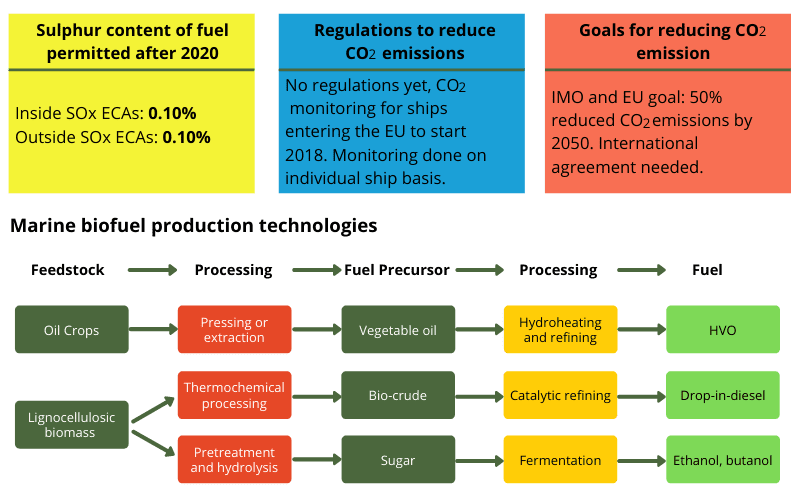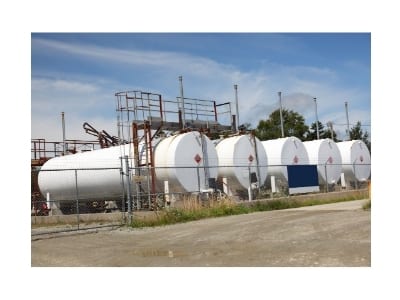Marine Biofuels
Bio-based Fuel for the International Shipping SectorSustainable Marine Fuel Supply Solutions
Marine biofuels produced from certified feedstocks are rapidly gaining interest among international ocean shippers and carriers. As one of the world’s leading bio-based fuel and feedstock suppliers, Targray helps guide and support international shipping companies seeking to reach their sustainability targets through the use of marine biofuel and EU ETS compliance solutions tailored to the maritime sector.
Shipping Sector Fuel Regulations
The shipping sector is a major contributor to world trade, with >80% of all goods are transported via international shipping routes. The sector consumes more than 330 million Metric Tonnes of fuel each year, accounting for 2-3% of the global CO2, 4-9% of SOx, and 10-15% of NOx emissions. Being international in its operation and organization, the sector is regulated by the International Maritime Organization (IMO). It handles issues regarding safety, security and pollution associated with international shipping.
The IMO has put forward strict regulation of the fuel sulphur levels, which create harmful pollution. Emission Control Areas (ECAs) have been created in the coastal waters of Europe, North America, and Asia. Within these areas, only 0.1% low-sulphur fuels are allowed. Moreover, from 2020 onwards, ships sailing in non-ECA areas will need to use less than 0.5% sulphur in their fuel. If low sulphur fuels are not used, scrubbers needs to be installed in order to remove the SOx emissions.
These regulations means that an estimated 70% of the fuels currently used by the sector needs to be modified or changed.
The Potential for Biofuels in the Shipping Sector
Biofuels have very low sulphur levels and low CO2 emissions. As such they are a technically viable solution to low-sulphur fuels meeting either VLSFO or ULSFO requirements. The immediate challenge is that the shipping sector has little knowledge on handling and applying biofuel as part of their fuel supply. Another challenge is that the volumes of marine biofuels required to supply the shipping sector are large.
Of the current biofuels commercially available, only plant biodiesel derived from plant oil or pulping residues and bioethanol are produced at a level where they can supply significant volumes of fuel. The current renewable diesel type fuels are mainly produced from plant based oils (like HVO) or used cooking oil (UCO), and the potential supply of sustainable renewable diesel with the current technology is an estimated 10-20 Mt.
Both technical and logistic issues needs to be resolved before biofuels can be introduced at a larger scale in the shipping sector. A closer collaboration between biofuel producers, suppliers, engine developers and ship owners is helping create a path forward for the emerging marine biofuels sector.

Marine fuel regulations and marine biofuels technologies. Souce: IEA Bioenergy.
Fostering the Growth of Marine Biodiesel
The use of biofuels in shipping presents itself as an opportunity to lower GHG emissions and improve air quality, given that biofuel feedstocks contain very little or no sulphur. Developing the infrastructure and supply chain for biofuels is also a chance to build a more sustainable economy for later generations.
Estabished in 2012, our Biofuels business has grown to become a leading international supplier of bio-based fuels, notably biodiesel. Our continuously expanding supply network is supported by marketing agreements with biodiesel producers throughout the U.S., Canada and Europe. Leveraging our experience as a global biodiesel distribution company, we are focused on helping freight shipping companies, ferry operators and cruise ship lines transition towards renewable marine fuels and fuel blends for their fleets.





